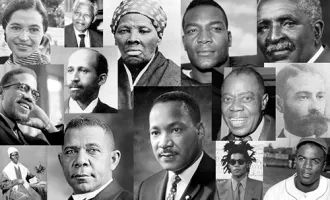
It's Time For Change, We Cannot Let Ukraine Be the Next Congo
The environment one lives in directly impacts one’s health — common sense tells us this. If someone knowingly harms another’s health, clear grounds for reparations exist. What happens, then, if our institutions repeatedly fail to hold these perpetrators accountable?
How could a justice system in the most powerful nation betray its obligations, allowing corporations to evade their accountability? Why does the global judicial landscape fail to protect nations?
These questions are not merely hypothetical — they have played out on the global stage and threaten to continue. Who is benefiting from this, and what is at stake?
Recent disputes tying military support to a mineral deal between the United States and Ukraine highlights the next chapter in neocolonialism and environmental destruction.
A shift in colonial practices followed the post-WWII era, where states often no longer directly controlled territories; multinational corporations at the behest of a nation-state continued the exploitation of less-developed nations through economic and political leverage, thus setting the scene for neocolonial rule.
Colonialism still occurs but often behind the vague guise of transactive resource extraction. This resource extraction not only entrenches persistent inequality but also takes a great toll on the environment, knowingly and with little to no care for remediation, furthering inequality.
Neocolonial resource extraction leads to environmental destruction, and locals rarely, if ever, share the economic benefits that derive from these resources. These persistent inequalities shape an aspect of what is known as social determinants of health — the social, economic, and environmental factors people live within.
When exploitation generates polluted environments and entrenches poverty, communities find themselves trapped in cycles of poor health, chronic illness, and limited opportunities for improvement.
Stories surrounding the Democratic Republic of the Congo (DRC) and Ecuador demarcate how neocolonial agendas perpetuate environmental degradation, which directly results in the drastic worsening of human health.
The DRC has been riddled with human rights abuses since King Leopold II in 1885, and the practice continues today. Instead of rubber trees, today’s resource involves the extraction of cobalt, which provides high-capacity lithium-ion batteries that power everything from our phones to our electric cars.
The DRC was unfortunate enough to have over half the world’s supply of cobalt. While the global community finally came to the consensus that slavery is wrong, our nations stay complicit as multinational giants sell cobalt to Tesla or Apple that were mined by the hands of children who endure near-famine and brutal working conditions, where dying is a likelihood, all to earn one to two USD a day.
The companies promise groups that their products are never touched by these so-called artisanal miners and yet reporting shows just the very opposite; the only thing that isn’t touched by artisanal miners is the earnings which could be used to improve their conditions.
Companies at the top of the supply chain make earnings in the trillions while the miners are 15-year-old girls with infants on their backs who both end up dying in the dirt (Kara tells Elodie’s story in their groundbreaking work Cobalt Red). It is not solely the United States perpetrating this, as the Chinese seem to make up many of the companies that rip these elements from the earth.
You and I, who buy these devices, are not the true perpetrators — these companies refuse to take accountability and reap the benefits. The people of the Congo continue to be exploited and treated as a resource themselves, all in the name of profit while costing them everything. The stories Kara’s reporting tells of demonstrate the normality of abject poverty, limited to no healthcare, and scores of dead.
Ecuador faced a similar challenge with Texaco (which merged with Chevron) starting in 1964. After discovering vast deposits within the rainforests, they extracted resources and destroyed the local environment in the process, causing indigenous individuals to lose access to land for living, nourishment, and sources of water, resulting in the deaths of many.
Despite an attorney representing the indigenous group winning a court case against Chevron in Ecuador with damages awarded to the sum of $9.5 billion USD, the corporation transferred its assets out of the country and sued the attorney for damages.
The United States court system, Canadian court system, and the Hague both found that Chevron was not liable, despite clear evidence and the support of the United Nations Human Rights Council and other human rights organizations to provide reparations for the devastation they caused.
With Ukraine facing a war against Russia, the United States has now manifested its neocolonial tendencies to reap benefits from a vulnerable Ukraine. Recent demands by the Trump Administration for mineral rights bear ghastly similarities to what has and is occurring in the DRC and Ecuador.
Will Ukraine find itself caught in a poverty trap if it accepts such a deal as the Congo has? Ukraine has been forced into a (lack of a) decision between fighting the Russians to keep hold of its sovereignty or losing its economic sovereignty to the United States for its insatiable hunger for resources.
Time and time again, people trapped between foreign greed and threat end up bearing the direct consequences. These devastating social determinants of health are avoidable and unnecessary — and yet they continue to persist as institutions repeatedly prioritize growth at all costs. This is the dogma of cancer — destroying and scavenging all resources for relentless growth.
If ethical arguments prove insufficient for demanding change, framing the issue as one of global security might better bridge the political aisle.
When transnational corporations and nations evade accountability, the resulting public health crises do not remain isolated in locality; they fuel global instability through economic burdens, normalize humanitarian abuses, and perpetuate neocolonial empires.
The global community consists of the individual — it is time for us to demand of our institutions that they uphold their promise of justice in the pursuit of human health and safety. We do not have the privilege and misfortune of living at the end of the story; this is just the middle, and it is time for accountability.



